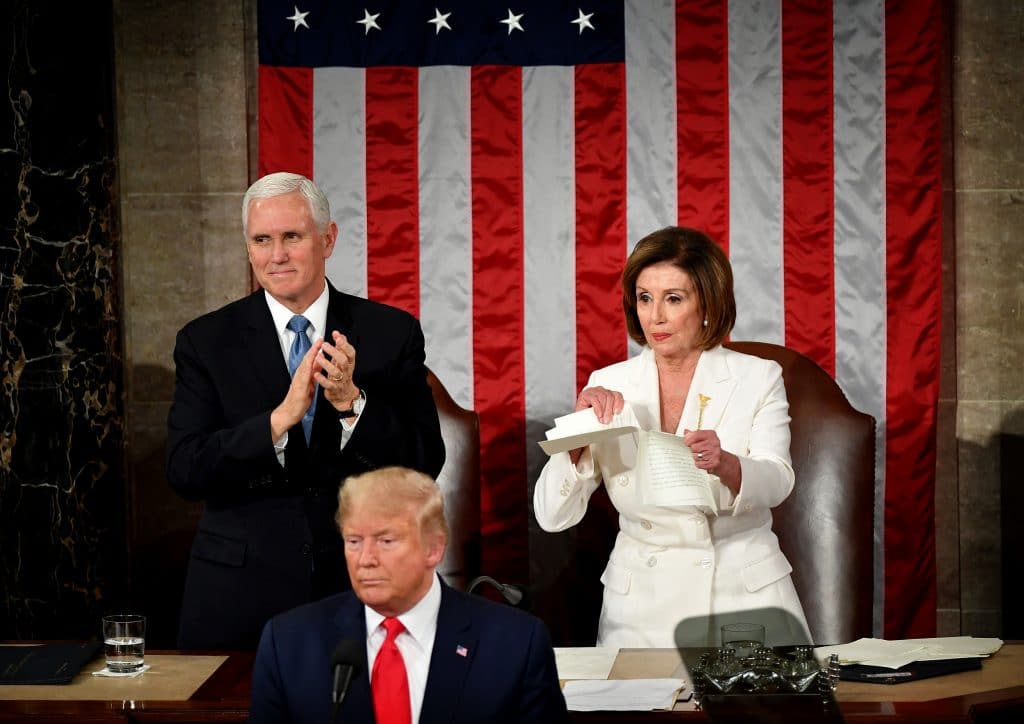The United States Government has since the second quarter of 2019 taken major measures against Nigeria, the most populous nation on the continent.
Secretary of State, Mike Pompeo, said Comoros, Russia, Uzbekistan, Cuba, Nicaragua, Nigeria, and Sudan are on a “Special Watch List” for governments that have engaged in or tolerated “severe violations of religious freedom”.
While the Christian leadership in Nigeria hailed the categorization, President Muhammadu Buhari’s special adviser on media, Femi Adesina, denounced it. The unwavering spokesman fulminated and declared that the U.S. is not ‘world police’.
“The United States itself has a lot to chew solving its own problems not to talk of poke-nosing into another country. Nobody has appointed them the policeman of the world. Let them face their own issues,” he said on Channels TV.
Adesina told America and other foreign powers to respect the internal issues of Nigeria, stressing that the government doing business with them does not mean the nation’s sovereignty should not appreciated.
It is unclear if moves to salvage the situation has commenced before America’s next review which may include Nigeria among “Countries of Particular Concern”, a more damaging status.
January 31, 2020: The U.S. hit Nigeria again with immigration ban. Henceforth, its citizens and those of Eritrea, Sudan, Tanzania, Kyrgyzstan and Myanmar will not get visas that can lead to permanent residency.
“These countries, for the most part, want to be helpful but for a variety of different reasons simply failed to meet those minimum requirements that we laid out,” acting Homeland Security Secretary Chad Wolf said.
Wolf assured that non-immigrant visas – visitor, business or medical – would still be issued.
In his proclamation, President Trump said Nigeria does not adequately share public-safety and terrorism-related information, which is necessary for the protection of the national security and public safety of the U.S.
“Nigeria also presents a high risk, relative to other countries in the world, of terrorist travel to the United States”, Trump averred.
Accepting the facts, President Buhari established a committee to study and address updated requirements relating to the assessment of compliance with certain security criteria by foreign governments.
Critics are feeding on these circumstances, but it’s not been too bad for Buhari and his All Progressives Congress (APC) administration. Despite the critical pronouncements, the U.S. recently – twice in four days actually – offered some kind words.
Trump, in his January 31 proclamation, described Nigeria as “an important strategic partner in the global fight against terrorism”.
Also, on February 3, after the signing of the agreement between the U.S., the Bailiwick of Jersey and Nigeria, for the return of $308 million stolen by late General Sani Abacha, America called the deal “a symbol of the weight” it places on the fight against corruption.
“We welcome President Buhari’s personal commitment to that fight”, Morgan Ortagus, State Department spokesperson, said in a statement.
In an interview, Norris Campbell, a political and foreign affairs analyst, posited that America retaliated because “they were compelled to respond”.
She remarked that all events are playing out against several backdrops including the U.S. 2020 election.
“Trump’s base responds positively to anti-immigration policies. So while this might not affect the larger number of Nigerians who come to the U.S. for non-immigrant purposes, it will be popular on the campaign trail”, Campbell said.
“Second reason, of course, is our abysmal human rights records and the United States’ continual admonition that we do better. The persecution of journalists and Christians in particular was always going to get a reaction. Addition to this debacle was the Sowore saga and the recent execution of the CAN Chairman (Lawan Andimi).
“Third reason is security. We’re the third most terrorized nation in the world. Our inability to police our borders, our less-than-secure passport issuance system, lax airport security checks and our Africa-wide visa-on-arrival policy was always going to raise concerns.
“Apart from the reputational damage, the ban won’t significantly affect Nigeria, as it is targeted towards professionals looking to settle abroad. We have 200 million people to worry about at home.
“It points to a lack of diplomatic relations that we let this happen, despite the repeated warnings we received. I do not expect a reversal anytime before the U.S. Elections.”
On what Nigeria should do, Campbell urged the government to employ better diplomatic relations with America and other western countries.
“One also hopes, for Nigeria’s sake rather than America’s, that the security loopholes highlighted by the Americans are closed as a matter of urgency by this government”, the expert added.





